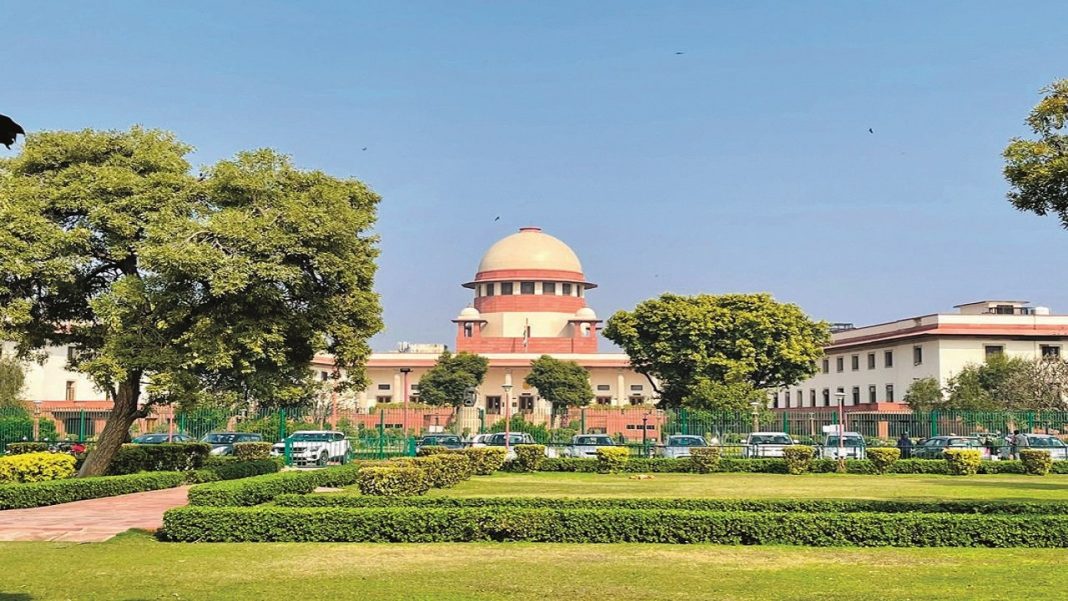Extending the Retirement Age of Supreme Court and High Court Judges (Indian Express)

- 08 Feb 2024
Why is it in the News?
The government has told a parliamentary panel that extending the retirement age of Supreme Court and High Court judges based on their performance may not be practical.
Key Insights from the Report on Judicial Processes and Reform:
- On August 07, 2023, the Standing Committee on Personnel, Public Grievances, and Law and Justice, chaired by Mr. Sushil Kumar Modi, presented its findings.
- Among its significant findings and recommendations, the Committee emphasized the necessity of raising the retirement age for judges.
- They highlighted the importance of aligning this age with advancements in medical sciences and increased life expectancy.
- At present, Supreme Court (SC) and High Court (HC) judges retire at 65 and 62 years, respectively.
- The Committee proposes amending relevant Articles (124 and 217) of the Constitution to extend these retirement ages.
- The retirement age of the High Court Judges was increased from 60 to 62 years, after the 15th constitutional Amendment according to section 4 of the Constitutional Act 1963.
- Furthermore, the Committee suggests implementing a system of appraisal by the SC Collegium to assess judges' performance and health conditions, as well as the quality and quantity of judgments delivered, before extending their tenure.
Debate Regarding the Retirement Age for Supreme Court (SC) and High Court (HC) Judges:
- Retiring SC judges have frequently reflected on their time in office, often feeling that their tenure didn't allow them sufficient opportunity to make meaningful contributions to the judiciary.
- In 2022, former Chief Justice of India (CJI) N.V. Ramana engaged in a dialogue with Justice Stephen Breyer of the US Supreme Court, who chose to retire at age 83 after serving for 27 years.
- Expressing his views, CJI Ramana, who was scheduled to retire after 8.5 years on the SC bench, remarked that 65 seemed 'too early an age for retirement.'
- Despite this, CJI Ramana's tenure surpassed that of most other SC judges.
- Among the current 32 Judges of the SC, only CJI Chandrachud, and Justices J.B. Pardiwala, K.V. Viswanathan, and Dipankar Datta are expected to exceed the 8-year mark.
- These judges represent a minority who surpass the average tenure of sitting SC judges, which stands at 5.4 years.
Why is the Government Resistant to Elevating the Retirement Age for SC and HC Judges?
- The government asserts that raising the retirement age for Supreme Court (SC) and High Court (HC) judges might lead to potential issues of favouritism.
- They argue that such a move would grant excessive authority to the SC Collegium, potentially diminishing parliamentary oversight in evaluating judges for tenure extensions.
- Additionally, the government expresses concerns that this change could subject judges to external pressures, compromising their ability to maintain impartiality.
- Moreover, they highlight the strain it would place on the already limited human resources within the Judiciary and the Executive involved in the appointment process.
Additional Insights from the Report on Judicial Processes and Reform:
- Establishment of Regional SC Benches: The Committee highlighted the challenge faced by litigants from distant regions due to the centralized nature of the Supreme Court in Delhi.
- They proposed leveraging Article 130 to create regional benches in four or five locations.
- These regional benches would handle appellate matters, while constitutional issues would remain under Delhi's jurisdiction.
- Enhancing Social Diversity in Judicial Appointments: Recognizing a diversity deficit in the higher judiciary, the Committee pointed out the low representation of marginalized communities.
- They noted that since 2018, only a small percentage of High Court judges belonged to Scheduled Castes and Scheduled Tribes.
- To address this, the Committee recommended that the Supreme Court and High Court Collegiums prioritize the nomination of women and candidates from marginalized communities, including minorities.
- Implementation of Mandatory Asset Declaration: While constitutional functionaries and government servants are obligated to declare their assets annually, judges are exempt from this requirement.
- The Committee urged the central government to enact legislation mandating higher judiciary judges to disclose their assets and liabilities each year to the appropriate authority.
- Revision of Vacation Practices in SC and HCs: The Committee observed that simultaneous vacations for the entire court contribute to case backlog and inconvenience for litigants.
- They proposed a staggered vacation system, wherein judges take leave at different times throughout the year, to mitigate this issue.
- Publication of Annual Reports by HCs: Presently, only a few High Courts publish annual reports, unlike the Supreme Court, which regularly issues its report.
- The Committee recommended that the Department of Justice collaborate with the Supreme Court to ensure that all High Courts prepare and publish their annual reports, promoting transparency and accountability in judicial operations.
